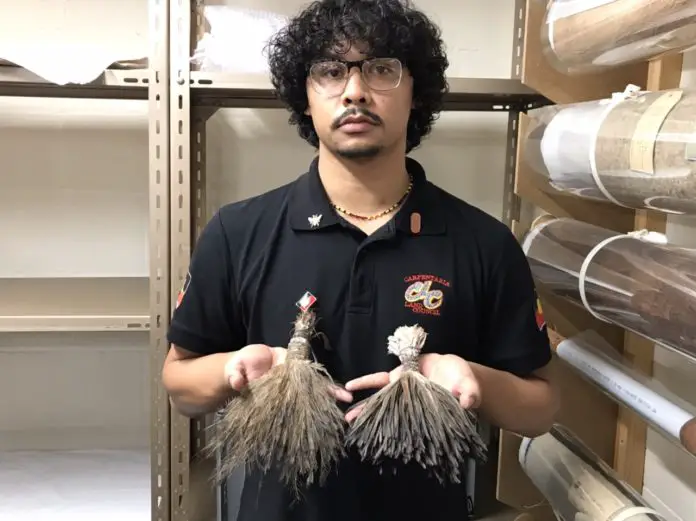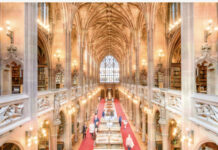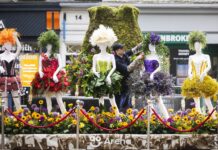Members of Australia’s aboriginal community have made an emotional visit to Manchester Museum to mark the return of sacred objects to their community.
The Museum is the first in the country to hand back sacred objects to aboriginal communities in Australia in the first of a series of events this week culminating in an official handover at Australia House in London on Friday
Gangalidda Garawa traditional owners, Donald Bob and Mangubadijarri Yanner with the Australian Institute of Aboriginal and Torres Strait Islander Studies (AIATSIS) are visiting the museum which has agreed to the unconditional repatriation of 43 sacred and ceremonial objects to the Gangalidda Garawa, Aranda of Central Australia, Nyamal of the Pilbara region and the Yawuru of the Western Kimberley.
The project in Australia will make the 250th anniversary of the arrival of Captain Cook’s voyage which opened the door to European exploitation of the native culture of the continent and the start of the depletion of the Aboriginal cultural heritage.
The objects found their way back to Europe in many ways, some taken by force or or brought back by explorers for cultural studies
Manchester Museum has 4.6 million items collected from around the world, many arriving in the late nineteenth and early twentieth century.
They are, said Esme Ward, the Museum’s Director, a product of empire and of social Darwinism , analysed and observed in isolation of their cultures and of indigenous resistance.
AIATSIS has identified over 100,000 items in 220 institutions of which 42 are in the UK.
”Our people want these sacred items home, but we want to tell the story as well of our 60,000 years of history”
Uncle Donald described how he felt cold when he first saw the artefacts-“the spirit jumped into my body and it was crying for its home.”
Esme told us that she hopes that this will be the start of a conversation around the world and will be the beginning of the repatriation of many of the sacred objects held by museums in the West
“By taking this action Manchester Museum will become more inclusive, caring and relevant to the communities it serves both locally and globally. Our work with AIATSIS to promote understanding between cultures, learn together and build new relationships for the future has never been more important or timely.”







